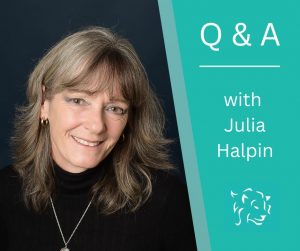Accessible Neurodivergent-Affirmative Therapy
People often assume that everyone processes information, communicates, and experiences things in the same way.
At Leone Centre, we approach neurodiversity with deep respect and understanding, recognising it as a natural and valuable aspect of human variation.
We acknowledge that neurodivergence brings unique perspectives, strengths, and lived experiences, alongside individualised needs in personal life and within the relational dynamics of couples, families, and communities.
At Leone Centre, we offer Neurodiversity-Affirmative Counselling both in person in London and online.
On This Page
Our Affirmative Principles
At Leone Centre, we see neurodivergence as a natural difference in humans and not a problem to be “fixed”. We believe every neurodivergent person brings perspectives, talents, and ways of being that deserve recognition, respect, and celebration.
Our approach is based on:
- Valuing neurodiversity as a normal and essential part of human diversity.
- Promoting acceptance by creating spaces where people feel truly seen, heard, and valued.
- Supporting empowerment to help individuals grow in self-awareness, self-trust, and confidence.
- Offering therapy tailored to individual needs, including sensory preferences, communication styles, and processing differences.
- Collaborating with clients with patience, openness, and a willingness to learn from their expertise in their own lived experience.
We focus on acceptance, validation, support and never on “masking” or forcing conformity to neurotypical norms.
How Can Neurodivergent-Affirmative Therapy Help?

For many, therapy may be the first space where they feel genuinely seen, heard, and understood.
Neurodivergent-affirmative therapy offers the opportunity to:
- Process lived experiences and past trauma.
- Navigate anxiety, depression, or stress in affirming and strengths-focused ways.
- Explore relationship and communication patterns with understanding and without judgement.
While traditional therapy approaches may not always meet neurodivergent needs, a skilled neurodivergent-affirmative therapist adapts their methods to each person’s preferences, sensory needs, and processing style.
An experienced neurodivergent-affirmative therapist can support individuals to:
- Develop a deeper understanding of themselves by exploring their unique patterns of thought, learning, and sensory experiences, and recognising these as valuable parts of who they are.
- Build confidence through celebrating personal achievements, embracing authenticity, and seeing self-expression as a strength.
- Improve overall quality of life in ways that are meaningful to them, centring their goals, preferences, and values rather than external expectations.
- Recognise and honour their strengths — whether in creativity, focus, empathy, innovation, determination, or the ability to see the world in unique ways.
- Shape environments that support their wellbeing by identifying sensory needs, communication preferences, and daily rhythms that help them feel safe and energised.
- Develop self-advocacy skills so they can confidently express needs, set boundaries, and seek support in relationships, education, and work.
- Strengthen relationships by building connection on mutual understanding, empathy, and shared respect for differences.
- Reclaim identity and self-worth by challenging negative stereotypes and embracing the richness of being neurodivergent.
- Build resilience and self-trust by learning affirming strategies that honour individual needs in spaces not designed with neurodiversity in mind.
- Celebrate joy and authenticity by engaging in activities, communities, and relationships that allow their full self to thrive.
Seeking therapy is a courageous step that can lead to meaningful personal growth, healing, and greater self-connection.
Meet Our Therapists Who Specialise in Neurodivergent Support
At Leone Centre, we have a team of therapists who specialise in supporting neurodivergent individuals, couples, and families.
“I offer neurodivergent-affirming therapy that honours who you are, beneath the mask, beyond the diagnosis. Together, we make space for your grief, celebrate your insight, and gently build a life that feels safe, real, and fully your own.” – Olena Baeva
Therapist Q&A Blogs:
“ When working with a family where one person is neurodivergent, my approach is to help the family understand how neurodiversity affects communication, patterns of interaction, routines, and sensory differences.” – Julia Halpin
Learn more about Julia’s approach in her Q&A blog >> https://www.leonecentre.com/blog/family-therapy/qa-session-with-therapist-julia-halpin
“(Family therapy) is particularly beneficial when one or more family members are neurodivergent because it creates a supportive environment where everyone can feel valued and heard.” – Mark Dalby
Learn more about Mark, a therapist with over 20 years of experience, in his Q&A blog >> https://www.leonecentre.com/blog/online-counselling/qa-session-with-therapist-mark-dalby/
Why Seek Neurodivergent-Affirmative Therapy?
Many neurodivergent people experience intense sensory input or differences in processing information. In environments designed around neurotypical norms, this can sometimes lead to sensory overwhelm, emotional exhaustion, or feelings of isolation.
Systemic barriers — in education, healthcare, workplaces, and family systems — can add layers of stress, especially when environments are not set up to accommodate different needs.
In relationships, the interplay between neurodivergent and neurotypical perspectives can sometimes create misunderstandings or communication gaps. Neurodivergent-affirmative therapy approaches these dynamics with patience, curiosity, and respect for all perspectives.
Therapy can provide a safe space to explore and understand your unique experiences.
What is Neurodiversity?
Neurodiversity describes the natural variation in human brain functioning and ways of experiencing the world. It encompasses many forms of neurodivergence, each with unique strengths and support needs.
Examples include:
- Autism – a form of neurodivergence that influences sensory processing, communication, and learning styles.
- ADHD – a form of neurodivergence involving differences in attention regulation, energy patterns, and executive functioning.
- Dyslexia – a difference in processing written language and word-based information.
- Dyscalculia – a difference in processing numerical and mathematical concepts.
- Dyspraxia (Developmental Coordination Differences) – differences in motor planning and coordination.
- Tourette’s – differences in how the brain regulates movement and sounds (tics).
Leone Centre: Your London Neurodiversity-Affirming Therapy Centre
We offer both in-person and online therapy to ensure accessibility and comfort.
For many, online therapy provides the flexibility to engage in sessions from a space that feels safe and familiar.
Online Neurodivergent-Affirmative Counselling
We recognise the importance of accessibility and inclusivity, including offering online counselling services.
We understand that traditional in-person therapy may not always be feasible or comfortable for everyone.
Our online Neurodivergent-Affirmative counselling provides a safe and supportive space to explore thoughts, emotions, and experiences from the comfort of your own home.
Individual Neurodivergent-Affirmative Counselling
Individual therapy offers neurodivergent people a space to explore their experiences, build confidence, and develop supportive approaches that work for them.
It can improve communication, self-awareness, and support stress, anxiety, and executive functioning differences.
Therapists also provide practical strategies for time management, task organisation, and emotional wellbeing, all within a neurodiversity-affirmative approach.
Neurodivergent-Affirmative Relationship Therapy
Couples counselling can be a beneficial way for both partners to improve communication and develop a deeper understanding of each other.
In couples counselling, a skilled therapist can support partners with the unique dynamics that come with neurodiversity, working on communication and mutual understanding.
Through couples therapy or marriage counselling, partners can learn to understand each other’s perspectives more fully and strengthen their emotional connection.
Examples of different couples and relationship structures that relationship therapy can support include:
- Heterosexual couples: Relationship therapy can help couples where one or both partners are neurodivergent to work through individual needs and communication styles. Therapy can support partners in developing ways to understand and assist each other, building healthier patterns together.
- Same-sex couples: Relationship therapy can provide a safe and inclusive space for same-sex couples where one or both partners are neurodivergent to address their shared and individual needs. Couples can explore experiences together and discover approaches that encourage understanding and acceptance.
- Polyamorous relationships: Relationship therapy can support polyamorous relationships by attending to each partner’s needs. A therapist can help clarify communication, boundaries, and emotional dynamics to encourage respectful, connected relationships.
- Long-distance relationships: Relationship therapy can be valuable for neurodivergent couples in long-distance relationships. Therapy can help address the stress, insecurities, or disconnection that distance may create, and explore ways to maintain closeness. Leone Centre offers online Neurodivergent-Affirmative Therapy so partners can attend from different locations.
- Intercultural relationships: Relationship therapy can provide a supportive space for couples navigating both cultural and neurological differences. Therapists can help partners appreciate each other’s backgrounds and communication styles, enhancing empathy and understanding.
- Open relationships: Relationship therapy can offer space for neurodivergent couples in open relationships to communicate openly about needs and boundaries, supporting trust and mutual respect.
Neurodivergent-Affirmative Family Therapy
Family therapy can be a powerful way to strengthen relationships and create inclusive and supportive environments for all members.
Families that include neurodivergent individuals may have individualised needs within their relationships.

Therapy can offer a space to understand each other’s perspectives, recognise strengths, and identify areas where extra support may be helpful.
At Leone Centre, we understand that the meaning of family is deeply personal and shaped by each person’s experiences, beliefs, and values. Honouring and respecting the many ways a family can be defined is central to our approach.
Examples of family structures that Neurodivergent-Affirmative Family Therapy can support include:
- Two-parent families: Therapy can help parents and children improve communication and strengthen emotional connections. Practical approaches can be developed to support sensory needs, such as managing noisy or crowded environments.
- Single-parent families: Therapy can provide a supportive environment for both the parent and child, helping develop communication skills and supportive approaches for stress.
- Blended families: Therapy can help stepparents and stepsiblings build empathy and understanding for each other’s experiences, and develop ways to manage conflict while strengthening relationships.
- Multi-generational families: Therapy can help members from different generations build connection and inclusion, supporting individual needs and perspectives.
- Adoptive or foster families: Therapy can help these families navigate transitions and develop patience and understanding as relationships grow.
- Same-sex parent families: Therapy can support same-sex parent families in understanding the specific needs of neurodivergent children or parents, enhancing awareness and compassion.
- Co-parenting families: Therapy can help co-parenting families communicate effectively and work together to support inclusion and wellbeing.
Neurodivergent-Affirmative Family Therapy can help families build relationships grounded in understanding and mutual respect, supporting each member in meaningful ways.
Book Your Online Therapy Session from Anywhere in The World
Whether you are seeking individual, couples, or family therapy, our neurodiversity-affirming therapists are available online via Zoom for clients across the UK and internationally.
Online therapy can be particularly beneficial for those who prefer to have therapy sessions in the comfort of their own environment.
Citations
Neurodiversity-Affirming Practices are a Moral Imperative for Occupational Therapy Western Michigan University.
Neurodiversity Affirming Therapy FAQs
What is the difference between Neurodiversity-Affirming Therapy and traditional therapy?
Neurodiversity-Affirming Therapy recognises neurological differences as natural variations, not problems to be fixed. Unlike traditional therapy, it adapts to each person’s communication style, sensory needs, and strengths, focusing on acceptance, self-understanding, and empowerment rather than “normalising” behaviour.
How is a neurodiversity-affirming therapist different from a traditional therapist?
A neurodiversity-affirming therapist adapts their methods to each client’s communication style, sensory needs, and processing preferences. They avoid practices that encourage masking or conformity to neurotypical norms, and instead work to build self-acceptance and confidence.
Who can benefit from neurodiversity counselling?
Neurodiversity counselling can support autistic and ADHD individuals, people with dyslexia, dyspraxia, Tourette’s, and other neurodivergent experiences — as well as couples and families where neurodiversity is part of the dynamic.
Do you offer online neurodiversity therapy across the UK?
Yes. We offer secure online therapy sessions with neurodiversity-affirming therapists, accessible from anywhere in the UK and internationally.
Can neurodiversity-affirming therapy help with anxiety or depression?
Yes. Many neurodivergent individuals experience anxiety, depression, or low self-esteem due to living in a world designed for neurotypical people. Affirming therapy provides strategies and emotional support to improve wellbeing in ways that honour identity and needs.





















